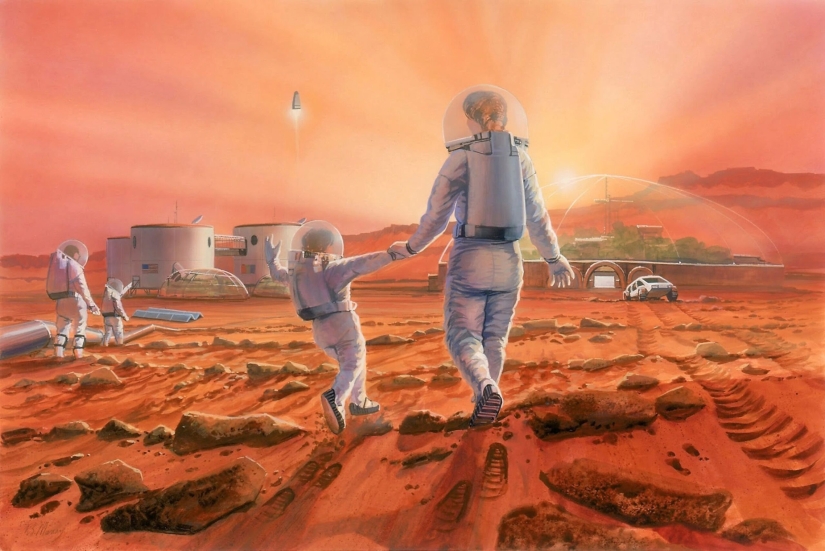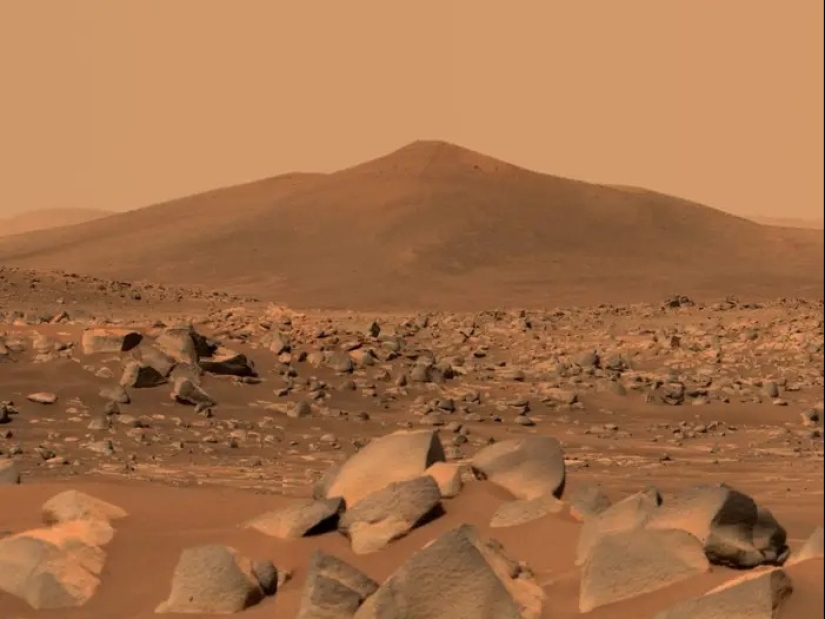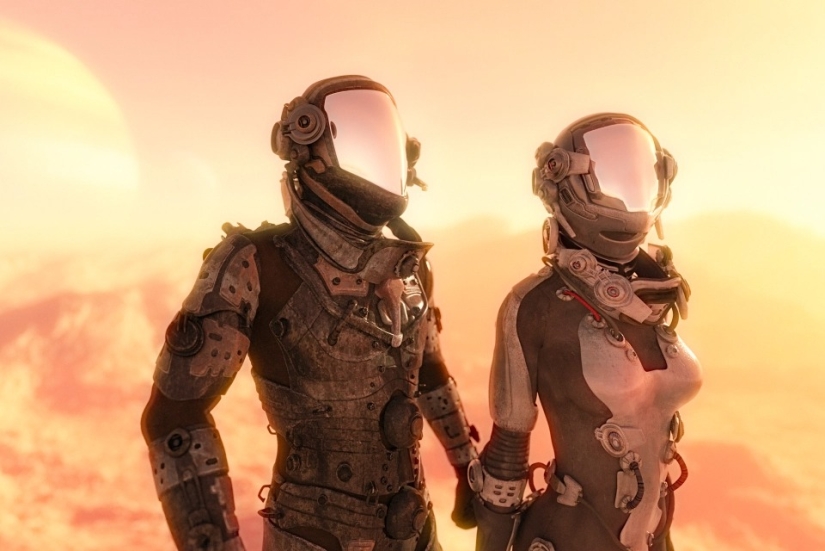Be fruitful and multiply! Scientists have found that people will be able to leave offspring on Mars
Categories: Science | Society | Space | World
By Pictolic https://pictolic.com/article/be-fruitful-and-multiply-scientists-have-found-that-people-will-be-able-to-leave-offspring-on-mars.html
The life of people on other planets no longer seems like a perfect fantasy, as a few decades ago. Space exploration is being conducted at such a rapid pace that the creation of colonies in open intergalactic space is perceived as an inescapable stage in the development of mankind. Previously, it was thought that it was impossible to reproduce on Mars because of the deadly radiation, but recently it turned out that it does not affect the reproductive qualities.
Scientists have concluded that humans will be able to reproduce on Mars. They hope that in the future it will be possible to create a space settlement on the Red Planet. Previously, it was believed that the level of radiation in the galaxy could destroy human DNA, making it impossible for offspring to appear.

Recent studies have shown that sperm cells can live in outer space for up to 200 years. To do this, scientists sent samples of mouse sperm to the International Space Station and left it under deadly radiation. After six years, they found that the seed was preserved in excellent condition.

The researchers conducted the same experiment on Earth, exposing sperm to X-rays: this also did not affect the ability to reproduce.

The only problem is how to have sex on Mars in microgravity. Nevertheless, experts are confident that in the future they will solve this issue. Scientists are constantly working to preserve the genetic diversity of not only humans, but also animals, when humanity begins to migrate to other planets.
Meanwhile, the MDRS (Mars Desert Research Station) project has been launched on Earth, involving dozens of volunteers from a wide variety of backgrounds. They are trying to adapt to everyday life on another planet-for months they live in specially equipped stations on the territory of the desert in North America, which even visually resembles the Red Planet.
Keywords: Space | Science | Mars | World | Radiation | People | Planets | Planet | Scientists | Research | Society | Humanity | Galaxy | Colony | Reproduction | Settlement | Opportunities | Life on mars | Sperm
Post News ArticleRecent articles

It's high time to admit that this whole hipster idea has gone too far. The concept has become so popular that even restaurants have ...

There is a perception that people only use 10% of their brain potential. But the heroes of our review, apparently, found a way to ...
Related articles

Have you heard of such a phenomenon as the doorway effect? Let's put it simply: have you ever walked into a room and immediately ...

Even in small apartments and homes can find a lot of functional areas, and with their help it is great to save space and ...

The question of what space smells like may not be considered topical, but, you must agree, it would be interesting to find out. It ...

New Year's is a time to surprise and delight loved ones not only with gifts but also with a unique presentation of the holiday ...